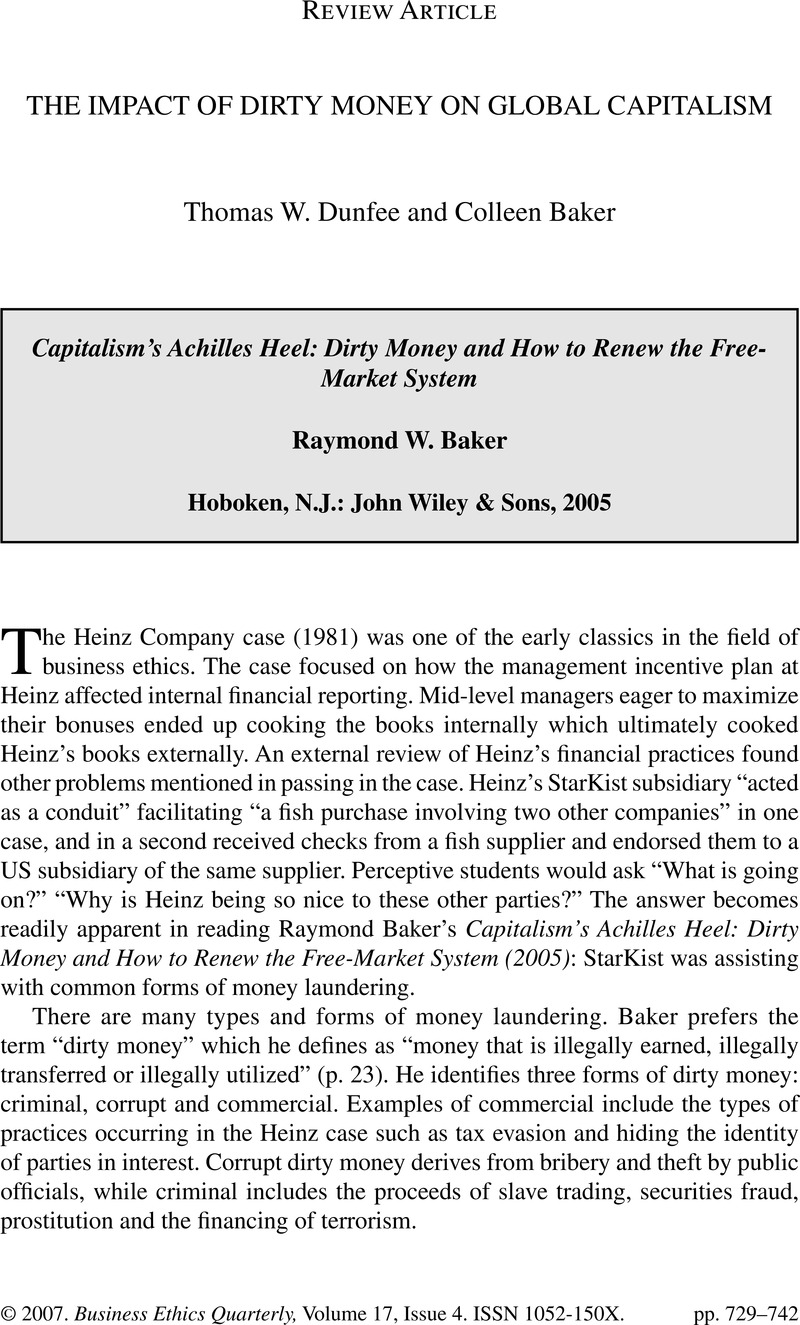No CrossRef data available.
Article contents
The Impact of Dirty Money on Global Capitalism
Published online by Cambridge University Press: 23 January 2015
Abstract
An abstract is not available for this content so a preview has been provided. Please use the Get access link above for information on how to access this content.

- Type
- Articles
- Information
- Copyright
- Copyright © Business Ethics Quarterly 2007
References
Baker, R. W.
2005. Capitalism's Achilles Heel: Dirty Money and How to Renew the Free-Market System.
Hoboken, N.J.: John Wiley & Sons, Inc.Google Scholar
Black, W. K.
2004. “The Dango Tango: Why Corruption Blocks Real Reform in Japan.” Business Ethics Quarterly
14(4): 603–23.Google Scholar
Economist.
2005. Special Issue. The Good Company: A Skeptical Look at Corporate Social Responsibility (January 22–28).
Google Scholar
Ghoshal, S.
2005. “Bad Management Theories Are Destroying Good Management Practices.” Academy of Management Learning and Education
4(1): 75–91.Google Scholar
Heinz H. J. Company: The Administration of Policy (A). 1981. Harvard Business School, 9–382-034, Rev. April 1, 1984.Google Scholar
O'Higgins, E. R. E.
2006. “Corruption, Underdevelopment, and Extractive Resource Industries: Addressing the Vicious Cycle.” Business Ethics Quarterly
16(2): 235–54.Google Scholar
Partnoy, F.
2005. “Must-Reads for Budding Fraudsters.” Book review. Financial Times (August 9).Google Scholar
Prahalad, C. K., and Hammond, A.
2002. “Serving the World's Poor, Profitably.” Harvard Business Review (September): 4–11.Google Scholar
Warde, I.
2006. “The Devil's Bankers.” Le Monde Diplomatique (July). http://monde-diplo.com/2006/07/18clearstream.
Google Scholar
Werhane, P. H.
2000. “Business Ethics and the Origins of Contemporary Capitalism: Economics and Ethics in the Work of Adam Smith and Herbert Spencer.” Journal of Business Ethics
24(3): 185–98.Google Scholar


